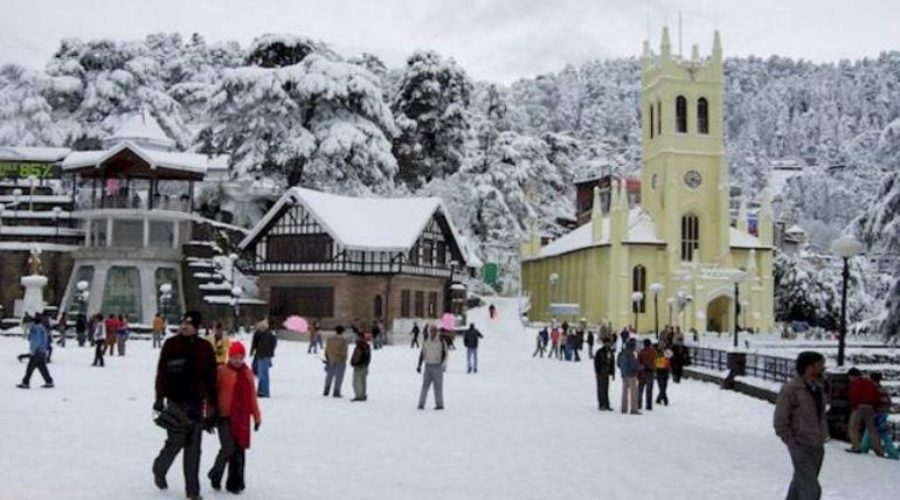Shimla
Shimla, also known as Simla, is the capital and the largest city of the Indian state of Himachal Pradesh. In 1864, Shimla was declared as the summer capital of British India. After independence, the city became the capital of Punjab and was later made the capital of Himachal Pradesh. It is the principal commercial, cultural and educational centre of the state. It was the capital city in exile of British Burma (present-day Myanmar) from 1942 to 1945.
Small hamlets were recorded prior to 1815 when British forces took control of the area. The climatic conditions attracted the British to establish the city in the dense forests of the Himalayas. As the summer capital, Shimla hosted many important political meetings including the Simla Accord of 1914 and the Simla Conference of 1945. After independence, the state of Himachal Pradesh came into being in 1948 as a result of the integration of 28 princely states. Even after independence, the city remained an important political centre, hosting the Simla Agreement of 1972. After the reorganization of the state of Himachal Pradesh, the existing Mahasu district was named Shimla.





